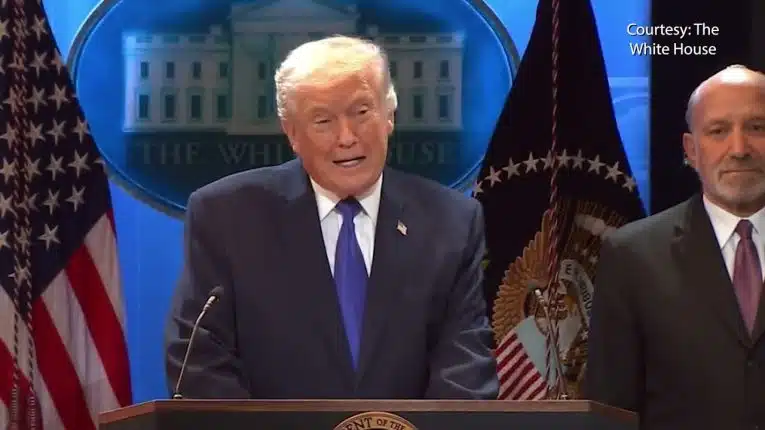
We have covered at length the vast, often double-digit shifts among swing voters — notably young, minority and independent voters — toward President Donald Trump between 2020 and 2024, with some left-wing pundits speculating the momentum would not last. However, with each survey we cover leading into the midterm election cycle, swing voters appear to be shifting rapidly away from Congressional Democrats just as much as they fled from the Kamala Harris campaign.
A blistering new survey from Echelon Insights fielded July 10-14 finds that swing voters are shifting by double-digits toward Congressional Republicans in a generic Congressional ballot.
Young voters, a group that has been causing Democrats a significant headache by moving toward President Trump in the 2024 election, appear to be on track to vote for Congressional Republicans at a significantly higher rate than they did even three years ago in the 2022 midterms.
The Echelon survey shows young voters still supporting Democrats next year, but by a mere eleven percentage points, 51 percent to 40 percent. Just three years ago, Democrats won young people by 28 points, 63 percent to just 35 percent according to CNN exit polls. This would cut Democrats’ advantage over Republicans from 28 points to 11 points.
Black voters — while still broadly supporting Democrats — are showing one of the largest shifts toward Congressional Republicans compared to how they voted in the 2022 midterm cycle. The Echelon survey reveals nearly a fifth (19 percent) of Black Americans plan to support Republicans, while 73 percent plan to support Democrats, which translates to Democrats winning their vote by 54 points.
This is a substantial shift from just three years ago, when Democrats won Black voters by 73 points, 86 percent to 13 percent. This would cut Democrats’ advantage over Republicans from 73 points to 54 points, a nineteen-point difference. Compared to 2018, the shift is even larger. Democrats won Black voters by 79 points, 90 percent to eleven percent, just eight years ago.
In the 2022 midterm elections under the ailing President Joe Biden, Democrats experienced a strong decline in support from Hispanic voters, and that decline appears to be holding. The Echelon survey shows a nearly identical share of Hispanics, 36 percent nationwide, plan to support Republicans in 2026. This is up from 29 percent in 2018, indicating that the Latino vote for Republicans rose significantly over the past eight years and has remained fairly steady from the Biden to the Trump terms, although other surveys have shown more signs of a shift towards Republicans. A spring 2025 UnidosUS survey for instance, found that over half of higher-earning Hispanics and half of Millennial Hispanics hold a favorable view of Congressional Republicans.
Independents are also moving back toward the GOP, after supporting Democrats in the two most recent off-year elections, 2022 and 2018. The Echelon survey shows independents supporting Republicans by two points in 2026, 40 percent to 38 percent, after supporting Democrats by two points, 49 percent to 47 percent, in 2022. Compared to 2018, the shift is even larger. In 2018, independents supported Democrats by twelve points, 54 percent to 42 percent.
While swing voters are moving toward the GOP compared to past midterm cycles according to early polls, groups that have been large supporters of the Democratic base are also moving away. For example, college educated voters are shifting toward the right.
While the GOP maintains a strong advantage among Americans without a college degree, polls have been showing a shift back toward the Republican Party among college graduates. Perhaps burnt out by the perpetual chaos-stoking of the left, college-educated Americans are reconsidering the GOP.
The Echelon survey shows Republicans winning Americans with a college degree by five points, 50 percent to 45 percent. This is a shift from 2022 when Democrats won college graduates by six points, 52 percent to 46 percent. It is an even more substantial swing toward the GOP compared to 2018. In 2018, college-educated Americans voted for Democrats by twelve percentage points, 55 percent to 43 percent.
The potential loss of even college-educated voters is a signal that the Democratic Party is losing support at all levels. While the midterm elections are still fifteen months away, early surveys offer a look at how the midterm cycle could shape out. Democrats are at risk of continuing to lose members of the “Obama Coalition” — young, working-class and minority voters — and are also at risk of losing college-educated voters.
Manzanita Miller is the senior political analyst at Americans for Limited Government Foundation.






